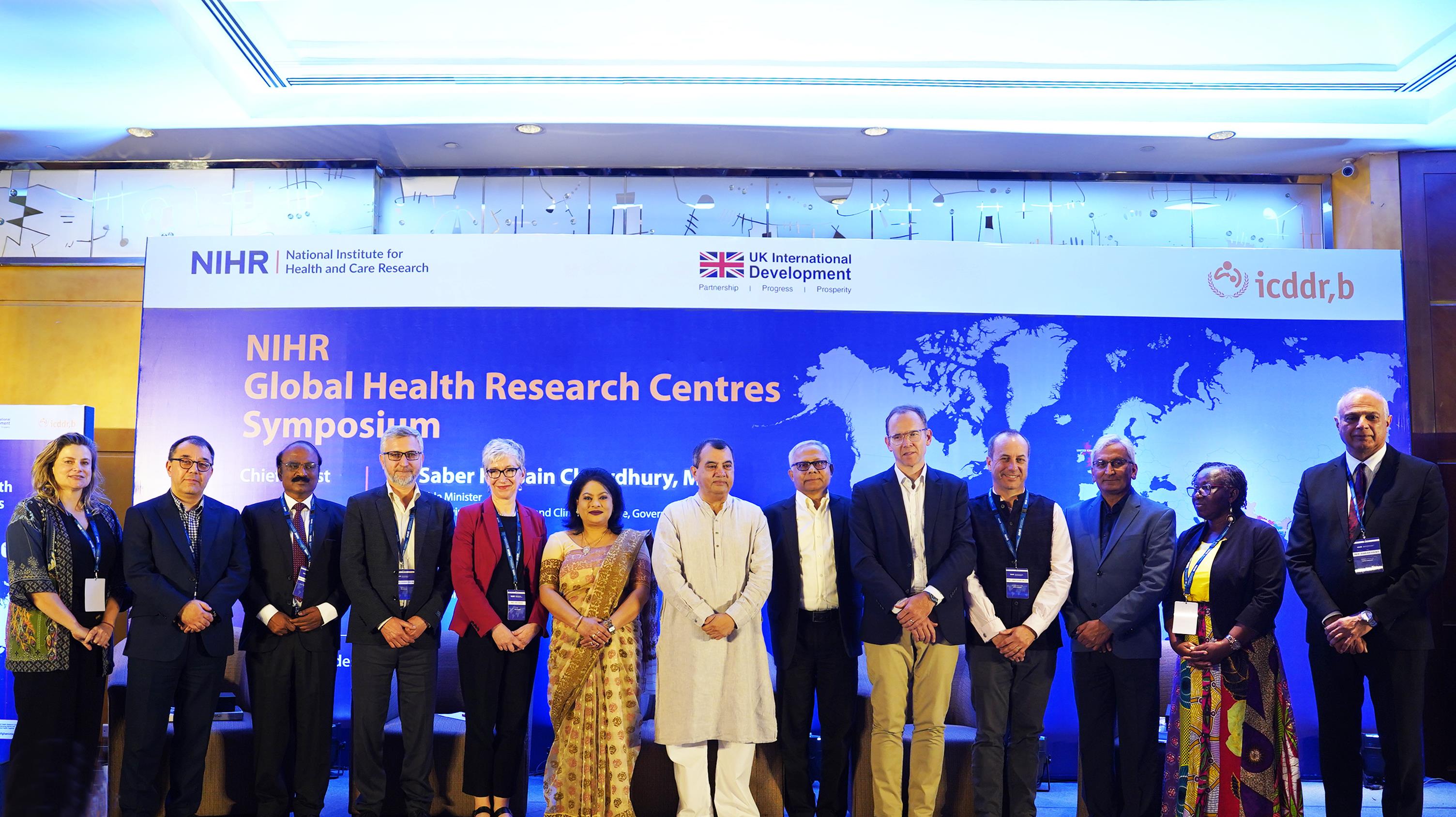Latest news

A new study supported by NIHR has found that women treated for ovarian cancer caused by faulty BRCA genes have a lower risk of also developing breast cancer than previously thought.

Research funded by NIHR's School for Public Health Research has found that UK adolescents get around two-thirds of their daily calories from ultra-processed foods.

Dr Lisa Ledger has been appointed NIHR Assistant Director of Allied Health Professions.

An NIHR-funded study has found that over-the-counter nasal sprays are effective at reducing the symptoms and duration of flu and colds in at-risk patients. They could also reduce antibiotic use.

Leading scientists at NIHR have been recognised in the King’s Birthday Honours List for outstanding contributions to health and social care.

In partnership with Diabetes UK, NIHR is investing nearly £3 million into research to spot, treat and prevent type 1 diabetes distress.

12 NIHR professors have been recognised for exceptional contribution to biomedical and health research.

Researchers funded by the NIHR’s Oxford Biomedical Research Centre have created a standardised tool that will be rolled out nationally

All NIHR global health research projects can now be led by researchers in LMICs

Sheffield Teaching Hospitals will run the new HRC Network, which extends across England

The NIHR Research for Patient Benefit (RfPB) Programme has funded a series of new awards to support nurses and midwives.

NIHR has awarded £1.5m funding to a new Greater Manchester mental health research project, which will evaluate a mental health joint response service.

The new package of research funding initiatives to stimulate brain tumour research is led by NIHR and the Tessa Jowell Brain Cancer Mission (TJBCM).

Patients’ risk of falling in the next 12 months could be predicted from their NHS data, thanks to a new calculator developed with funding from NIHR.

Giving small daily doses of milk or peanuts to children who are allergic to them can help train their bodies to tolerate the allergens, according to early results from a new trial.

A girl born deaf can now hear unaided after participating in a world first trial.

Thousands more men could be saved every year as a new screening trial aims to double the efficacy of prostate cancer screening.

Researchers at UCLH are trialling a skin cancer immunotherapy that is personalised to each patient's tumour

The Commercial Research Delivery Centres will work with industry and other infrastructure to accelerate the delivery of commercial clinical research

More than 25 research organisations across the UK have today agreed to an environmental sustainability concordat.

A new targeted drug combination treatment for children and young people with an aggressive form of brain cancer has been recommended by NICE. Its development was strongly supported by the NIHR.

The symposium facilitated shared learning across the Centres and with relevant stakeholders

The drugs have been linked to a wider range of serious health outcomes than previously thought

Recommendations to tackle urgent global challenges in breast cancer have been laid out in a new report led by NIHR Research Professor, Charlotte Coles.

NIHR and the Medical Research Council (MRC) are funding the trial, which is being run by Oxford University in collaboration with NHS Blood and Transplant.


























